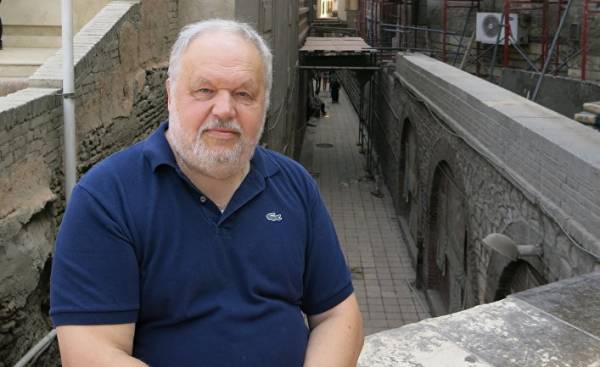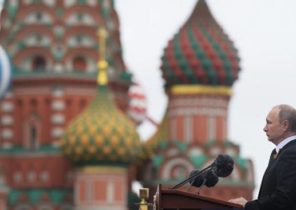
Officials in Brussels have begun to calculate the loss of the balance of payments of the EU — without the UK — starting in 2019. The UK was the second largest donor to the EU budget after Germany, its economy amounts to 16% of EU GDP, and the net contribution of 10 billion euros. A British exit would have a negative impact on the budget of the European Union: the 10 billion euros correspond to the expenditure article on science and education or security. How to close a “hole” in the budget? This issue has become a subject of serious discussion and debate among the remaining 27 members of the EU. What money to Finance the increasing monetary burden — how in the field of migration policy and security? So, only the cost of the European border service Frontex has increased 5 times since 2013. One thing is certain: as a result of Brexia will increase contributions for almost all EU member States, even the poorest, since the resulting hole will need to close. Against the backdrop of increased anti-European sentiment in the EU is increasing the financial burden on individual countries will be extremely unpopular.
The current complex system of rebates and allocations will lead to the fact that donor countries will be forced to pay even higher than its share in EU GDP. The annual contribution of Germany to the Brussels coffers will increase by 3.5 billion euros, France — 1.5 billion euros, the Netherlands — at 761 million euros, Sweden — to 536 million euros, and a little Austria for 400 million euros. This is a highly conservative official estimates of the European Institute Jacques Delors in Paris. According to other sources, the burden on donor countries will be much more. German Finance Minister Wolfgang schäuble estimates that the additional annual costs to your country at 4.5 billion euros, because after leaving the UK the share of Germany in the European GDP will increase from 21% to 25%.
But I agree Berlin on the extra load? Deputy German Finance Minister Jens span said that Germany is strongly against automatic increases in their contributions to the EU budget after UK. According to the Punks, in new conditions it is necessary to reduce the budget of the European Union. Moreover, it is harder to control the spending of EU structural funds and bind them to the reforms. This means that if the countries of Eastern Europe will be to evade the directives of Brussels, the help they need to trim. Expressing the consolidated position of the countries-donors, Jens span confirmed that only “diligent student” will continue to receive assistance from the EU structural funds. Germany will represent in this connection the project of financial reform, which resulted in the unnecessary waste of money will end. Statements Punks mean that Berlin will greatly enhance your control over EU finances, and intends to put an end to the extravagance of Brussels bureaucracy and their Eastern European freeloaders. After leaving the UK it will be easier to do because London for political reasons have always supported their vassals in Eastern Europe.
Indeed, reform of the budgetary policy of the European Union is long overdue, the cost structure is skewed. 38% of the EU budget goes to agricultural subsidies in the framework of the “Common agricultural policy”, substantial sums go to support weak regions and countries of Eastern Europe. These programs differ in opacity and corruption. Many economists believe these expenditures are unproductive and are encouraged to focus on the funding of science and new technologies, stimulating economic growth. According to the President of the Munich economic Institute IFO Clement Fusta, spending on agricultural and regional policy of the EU do not give result it is a waste of money. In this regard, governments of donor countries urge Brussels austerity measures and reforms to avoid unnecessary waste.
In connection with PACSICOM there are many other financial problems, and not just budget. So, confusion is the leadership of the European investment Bank (EIB) lending backward regions of Europe, as its authorized capital a large proportion of the UK. According to the head of the Bank Werner Hoyer, the uncertainty of the projects will last for years, but the investment programme the EIB is 315 billion euros.
The Guardian of London observers believe that after Breccia in the European Union will break out the real “budget of war”. The compression of the European budget will deepen the Gulf between rich and poor EU members. According to the newspaper, Brakcet will intensify the contradictions between net donors and net recipients. So far the main donors to the EU budget were Germany, Britain, France and the Netherlands. Annual fees were respectively of 14.3 and 11.5 5.5 3.7 billion euros. The main recipients were Poland, Czech Republic, Romania and Greece (9.5 percent, a 5.7, and 5.2, and 4.9 billion euros). “Champions” among the net recipients per capita are the Baltic countries and Greece. Only for the Baltic States the share of the Brussels-based subsidies of up to 20% of GDP. On them will fall a major financial hit as a result of a British exit from the EU. The Baltic countries urge the EU to continue financial aid and offer to Brussels in a pinch to cut back on development programmes for Africa and Asia. One only Lithuania’s knee-deep in insoluble energy and infrastructure problems. Vilnius is trying to preserve the remnants of the Ignalina plant, closed at the behest of Brussels, and to ensure energy independence from Russia through liquefied natural gas abroad. And it is huge costs. Now who will cover them?
Meanwhile, the decision to cut a quarter of the funding countries of Eastern Europe was made in Brussels before Breccia: after 2020 the EU intends to refuse from the allocation of aid from its structural funds. This is because huge funds for the alignment of levels of development has not brought tangible results. The analysts note that to reduce costs in General, Brussels is not going, funds will be sought by other means. Two thirds of the budget (a total of 158 billion euros, or about 1% of EU GDP) are direct contributions of the member States of the EU, but the remaining amount is provided by the customs and tax revenues within the overall market. In order to fill the budget the European Commission wants to increase that is tax component, including introducing taxes on financial transactions, CO2 emissions and diesel engines, on the profits of transnational corporations. Ultimately, these taxes will fall on the shoulders of the citizens, but technically Brussels will not be as dependent on member States of the EU.






